What You Need To Know About Brain Health – Nourishing Your Mind with 8 Powerful Nutrients for Brain Health
Nourishing Your Mind with 8 Powerful Nutrients for Brain Health
Overview
In the intricate web of human well-being, the spotlight often falls on physical health. However, the profound significance of brain health should not be underestimated. A well-nourished brain serves as the cornerstone of cognitive function, emotional balance, and overall mental vitality. This article embarks on a journey to explore nine paramount nutrients that stand as champions of brain health: Marine-based Omega-3 fats (DHA and EPA), Choline, Phosphatidylserine, Acetyl-L-carnitine, Vitamin D, Vitamin B12, MCT Oil, and Probiotics. Let’s embark on a detailed exploration of the science-backed virtues of each of these nutrients and discern how they contribute to a flourishing brain.
What are the dangers of not having a healthy brain?
Not maintaining a healthy brain can have significant consequences on various aspects of your life. Cognitive decline, mood disturbances, and increased risk of neurological disorders are some of the potential dangers associated with an unhealthy brain. Here’s a closer look at the risks, along with supporting references:
- Cognitive Decline: Failing to prioritize brain health can lead to cognitive decline, which includes problems with memory, attention, reasoning, and problem-solving. As we age, the risk of conditions like mild cognitive impairment and Alzheimer’s disease increases. Neglecting brain health factors such as nutrition, exercise, and mental stimulation can contribute to the acceleration of cognitive decline.
- Mood Disorders: An unhealthy brain can contribute to mood disorders like depression and anxiety. Neurotransmitter imbalances, inflammation, and reduced neuroplasticity are potential mechanisms that link brain health to mental well-being. Addressing lifestyle factors that support brain health can play a role in reducing the risk of mood disorders.
- Neurological Disorders: Certain neurological disorders, such as Parkinson’s disease and multiple sclerosis, are characterized by damage to the nervous system. While genetics can play a role, lifestyle factors like diet, exercise, and environmental exposures also contribute to the risk of developing these conditions. Prioritizing brain health can potentially mitigate the risk of neurological disorders.
- Decreased Quality of Life: An unhealthy brain can lead to a decreased overall quality of life. Cognitive deficits and mood disturbances can affect daily functioning, relationships, and the ability to engage in activities you enjoy. A well-nourished brain, on the other hand, supports optimal cognitive function, emotional well-being, and overall life satisfaction.
It’s important to remember that many factors contribute to brain health, including genetics, lifestyle, and environmental influences. Adopting a balanced diet rich in brain-nourishing nutrients, engaging in regular physical and mental exercise, managing stress, and seeking medical advice when necessary are all essential steps in promoting a healthy brain and reducing the risks associated with cognitive decline and neurological disorders.
Diseases caused by poor brain health
Poor brain health can contribute to a range of conditions and diseases. While brain health is influenced by various factors, including genetics and lifestyle, maintaining a healthy brain is essential to reduce the risk of these diseases. Here are some examples of conditions linked to poor brain health, along with references:
- Alzheimer’s Disease: Alzheimer’s disease is a progressive neurodegenerative disorder characterized by memory loss, cognitive decline, and impaired daily functioning. Poor brain health, including inflammation, oxidative stress, and accumulation of beta-amyloid plaques, is thought to contribute to the development of Alzheimer’s.
- Parkinson’s Disease: Parkinson’s disease is a chronic neurodegenerative disorder that affects movement and is associated with the loss of dopamine-producing neurons. Poor brain health, including mitochondrial dysfunction and oxidative stress, is believed to play a role in the pathogenesis of Parkinson’s disease.
- Depression: Depression is a mood disorder characterized by persistent feelings of sadness, hopelessness, and lack of interest in activities. Poor brain health, including neurotransmitter imbalances and inflammation, is associated with the development and progression of depression.
- Anxiety Disorders: Anxiety disorders involve excessive worry and fear that can interfere with daily life. Poor brain health, including imbalances in neurotransmitters like serotonin and gamma-aminobutyric acid (GABA), can contribute to the development of anxiety disorders.
- Cognitive Decline and Dementia: Poor brain health can lead to cognitive decline, which is a gradual deterioration of cognitive function. This can progress to dementia, a broader term for severe cognitive impairment that interferes with daily activities. Multiple factors, including inflammation, oxidative stress, and decreased neuroplasticity, contribute to cognitive decline.
- Multiple Sclerosis: Multiple sclerosis is an autoimmune disease that affects the central nervous system, leading to inflammation and damage to the protective myelin sheath. Poor brain health, including immune system dysfunction, contributes to the development of multiple sclerosis.
- Stroke: Stroke occurs when blood flow to the brain is disrupted, leading to brain cell damage. Poor brain health, including hypertension, atherosclerosis, and cardiovascular risk factors, increases the risk of stroke.
It’s important to note that brain health is influenced by a complex interplay of factors, and the development of these diseases is multifactorial. While poor brain health may contribute to these conditions, other factors such as genetics, lifestyle, and environmental influences also play significant roles. Maintaining a healthy lifestyle, including a balanced diet, regular exercise, stress management, and cognitive engagement, can contribute to better brain health and potentially reduce the risk of these diseases.
How to maintain a healthy brain?

- Marine-Based Omega-3 Fats (DHA and EPA): Omega-3 fatty acids are renowned for their pivotal role in nurturing brain health. The specific types—docosahexaenoic acid (DHA) and eicosapentaenoic acid (EPA)—stand out due to their remarkable contributions. DHA is a foundational component of brain cell membranes, supporting structural integrity and facilitating communication between neurons. EPA, on the other hand, assists in curbing inflammation, a factor linked to cognitive decline. The “Nutritional Neuroscience” journal reported that omega-3s bolster cognitive function, memory, and mood regulation.
- Choline: Choline, an essential nutrient, emerges as a precursor to acetylcholine, a neurotransmitter pivotal for memory and cognitive prowess. Foods rich in choline, such as eggs, liver, and soybeans, have been celebrated for their potential to elevate cognitive performance and safeguard memory. A compelling study published in the “American Journal of Clinical Nutrition” found that increased choline intake during pregnancy exhibited a positive impact on children’s cognitive development.
- Phosphatidylserine: Phosphatidylserine, a phospholipid nestled within brain cell membranes, garners attention for its multifaceted roles. From preserving cell integrity to facilitating neurotransmitter release and enhancing memory, this nutrient shines. A meticulous meta-analysis featured in the “Journal of Clinical Psychopharmacology” asserted that phosphatidylserine supplementation might amplify cognitive performance and memory.
- Acetyl-L-Carnitine: Delving into amino acids, Acetyl-L-carnitine (ALCAR) takes the spotlight. Its contributions extend to energy production within brain cells and acting as an antioxidant combatting oxidative stress—an ally against cognitive decline. “Psychopharmacology” showcased that ALCAR supplementation could potentially refine cognitive function and memory.
- Vitamin D: Vitamin D transcends its well-known role in bone health to influence brain well-being. With its receptors scattered throughout
brain tissue, Vitamin D becomes a protagonist in neuroprotection and regulation of neurotrophic factors. The “Journal of Clinical Endocrinology & Metabolism” hinted at a possible correlation between Vitamin D deficiency and cognitive impairment.
- Vitamin B12: Vitamin B12 emerges as a vital player in neurotransmitter synthesis and myelin maintenance—the protective sheath enfolding nerve fibers. Dwindling Vitamin B12 levels correlate with cognitive decline and memory impairment. The “American Journal of Clinical Nutrition” asserted that sustaining cognitive function as we age hinges on adequate B12 intake.
- MCT Oil: Medium-chain triglycerides (MCTs) take a special place due to their conversion into ketones, an alternate brain energy source. MCT oil’s allure lies in its potential to augment cognitive function, especially in conditions like Alzheimer’s disease. “Journal of Alzheimer’s Disease” outlined an enhanced cognitive performance among mild cognitive impairment patients through MCT oil supplementation.
- Probiotics: The intriguing gut-brain connection propels probiotics into the limelight. A thriving gut microbiome orchestrates positive influences on brain health, including inflammation reduction, neurotransmitter production, and mood elevation. A comprehensive review in “Frontiers in Aging Neuroscience” explored the realm of probiotics in augmenting cognitive function and mental well-being.
Natural Foods for Boosting Brain Health
Here’s a breakdown of natural food sources for each of the mentioned nutrients:
- Marine-Based Omega-3 Fats (DHA and EPA): This nutrient can be found in foods such as Fatty wild caught fish like salmon, mackerel, sardines, and anchovies which are rich sources of DHA and EPA. Consuming these fish a few times a week can provide a significant amount of these essential omega-3 fatty acids.
- Choline: Choline can be found in foods like eggs, particularly in the yolk. Liver, lean grassfed meats, wild caught fish, and cruciferous vegetables like broccoli are also good sources of choline.
- Phosphatidylserine: While phosphatidylserine is not commonly found in everyday foods, it can be derived from sources like cow brains, chicken hearts, and some plant-based supplements. However, it’s important to consult with a healthcare professional before considering supplementation.
- Acetyl-L-Carnitine: Acetyl-L-carnitine is present in relatively small amounts in red meats, particularly in lamb. However, significant levels might require supplementation, which should be discussed with a healthcare provider.
- Vitamin D: Natural sources of Vitamin D include fatty fish like salmon, tuna, and mackerel, as well as fortified foods like dairy products and orange juice. Sun exposure is also a natural way for the body to synthesize Vitamin D.
- Vitamin B12: Animal products are the primary sources of Vitamin B12. Foods like meat, poultry, fish, eggs, and dairy are rich in Vitamin B12. Fortified plant-based foods can also be a source for those following a vegetarian or vegan diet.
- MCT Oil: MCT oil is derived from sources like coconut oil. Coconut oil contains MCTs, and MCT oil is a concentrated form of these fats. However, MCT oil is not a naturally occurring food; it’s typically a processed product.
- Probiotics: Probiotics are found in fermented foods such as yogurt, kefir, sauerkraut, kimchi, miso, and certain types of pickles. These foods contain live beneficial bacteria that support gut health and potentially impact brain health. You can also take probiotic supplements to help boost brain health.
It’s important to note that individual dietary needs can vary based on factors such as age, health conditions, and dietary preferences. Incorporating a variety of nutrient-rich foods into your diet and, when necessary, consulting a registered dietitian or healthcare professional can help you make informed decisions to support your brain health.
Symptoms of Brain Health Nutrient Deficiencies
Here are some potential symptoms associated with the lack of the mentioned nutrients:
- Marine-Based Omega-3 Fats (DHA and EPA): Symptoms: Poor memory, difficulty concentrating, mood swings, dry skin, and joint pain.
- Choline: Symptoms: Memory problems, difficulty with cognitive tasks, muscle aches, and fatigue.
- Phosphatidylserine: Symptoms: Cognitive decline, memory issues, and mood disturbances.
- Acetyl-L-Carnitine: Symptoms: Fatigue, poor memory, cognitive decline, and mood changes.
- Vitamin D: Symptoms: Fatigue, low mood, muscle weakness, increased susceptibility to infections, and impaired cognitive function.
- Vitamin B12: Symptoms: Fatigue, weakness, memory problems, numbness or tingling in extremities, mood changes.
- MCT Oil: MCT oil itself is not a naturally occurring nutrient, but rather a concentrated source of medium-chain triglycerides found in coconut oil. There aren’t specific symptoms associated with its deficiency. However, its potential benefits include improved cognitive function and energy levels, particularly in individuals with neurodegenerative disorders.
- Probiotics: Symptoms: Digestive issues such as bloating, gas, diarrhea, or constipation, along with potential mood disturbances due to the gut-brain connection.
It’s important to note that these symptoms can be indicative of various factors and conditions, and they don’t solely indicate a deficiency in the mentioned nutrients. If you’re experiencing persistent symptoms, it’s recommended to consult a healthcare professional for proper diagnosis and guidance. Additionally, maintaining a balanced diet, engaging in regular physical activity, managing stress, and getting adequate sleep are all crucial for overall health and well-being.
After Thoughts
In the symphony of nutrition and brain health, these select nutrients strike harmonious chords, resonating with cognitive function, memory preservation, and mental serenity. Weaving a tapestry of marine-based Omega-3 fats, choline, phosphatidylserine, acetyl-L-carnitine, Vitamin D, Vitamin B12, MCT oil, and probiotics into our diets could herald transformative benefits for brain health. As we traverse this path, remember that individual needs vary—consulting a healthcare professional remains a wise course before making significant dietary alterations.
For natural and healing remedies, products, and supplements that can help you live your most optimal healthy life, visit our store here!
Own Your Health!
References:
- https://www.ncbi.nlm.nih.gov/pmc/articles/PMC4418048/
- https://pubmed.ncbi.nlm.nih.gov/22116026/
- https://pubmed.ncbi.nlm.nih.gov/29982718/
- https://pubmed.ncbi.nlm.nih.gov/12417966/
- https://pubmed.ncbi.nlm.nih.gov/16767943/
- https://pubmed.ncbi.nlm.nih.gov/22508711/
- https://pubmed.ncbi.nlm.nih.gov/15671130/
- https://pubmed.ncbi.nlm.nih.gov/25173681/
- https://www.frontiersin.org/articles/10.3389/fnagi.2020.00220/full
- https://www.ncbi.nlm.nih.gov/pmc/articles/PMC4927065/
- https://www.ncbi.nlm.nih.gov/pmc/articles/PMC4585433/
- https://www.ncbi.nlm.nih.gov/pmc/articles/PMC5954339/
- https://www.ncbi.nlm.nih.gov/pmc/articles/PMC5792709/
- https://ods.od.nih.gov/factsheets/Omega3FattyAcids-Consumer/
- https://ods.od.nih.gov/factsheets/VitaminB12-Consumer/
- https://www.ncbi.nlm.nih.gov/pmc/articles/PMC6266235/
- https://pubmed.ncbi.nlm.nih.gov/22116026/
- https://www.ncbi.nlm.nih.gov/pmc/articles/PMC3153866/
- https://pubmed.ncbi.nlm.nih.gov/16767943/
- https://pubmed.ncbi.nlm.nih.gov/22508711/
- https://pubmed.ncbi.nlm.nih.gov/15671130/
- https://pubmed.ncbi.nlm.nih.gov/25173681/
- https://www.ncbi.nlm.nih.gov/pmc/articles/PMC4425030/
- https://www.ncbi.nlm.nih.gov/pmc/articles/PMC5564122/
- https://pubmed.ncbi.nlm.nih.gov/29912182/
- https://www.ncbi.nlm.nih.gov/pmc/articles/PMC4585433/
- https://www.ncbi.nlm.nih.gov/pmc/articles/PMC6520591/
- https://www.ncbi.nlm.nih.gov/pmc/articles/PMC4927065/
- https://www.ncbi.nlm.nih.gov/pmc/articles/PMC5954339/
- https://www.ncbi.nlm.nih.gov/pmc/articles/PMC5220456/




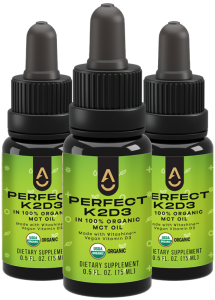
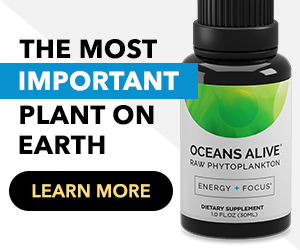
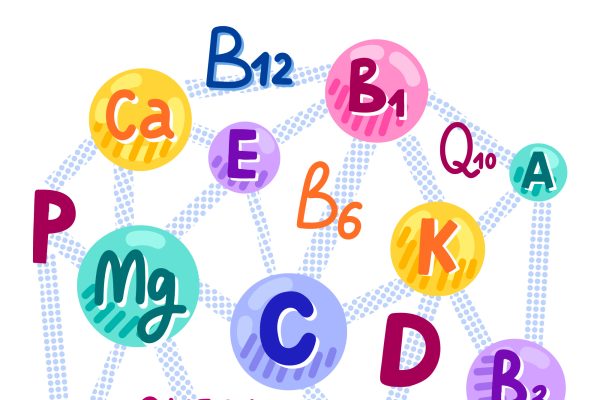
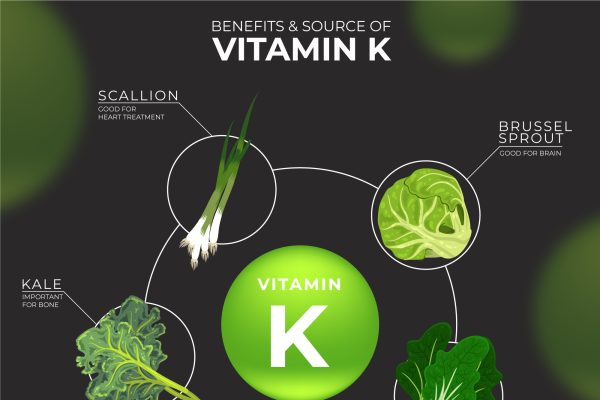






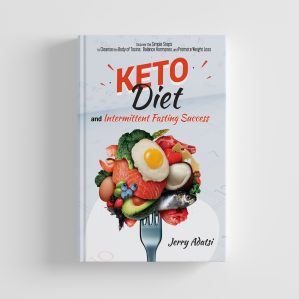

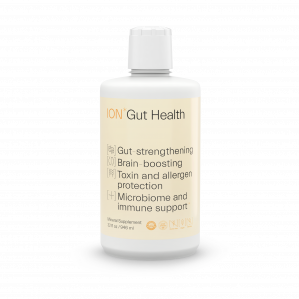
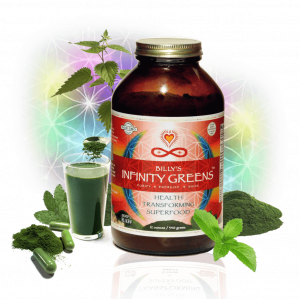











0 Comment